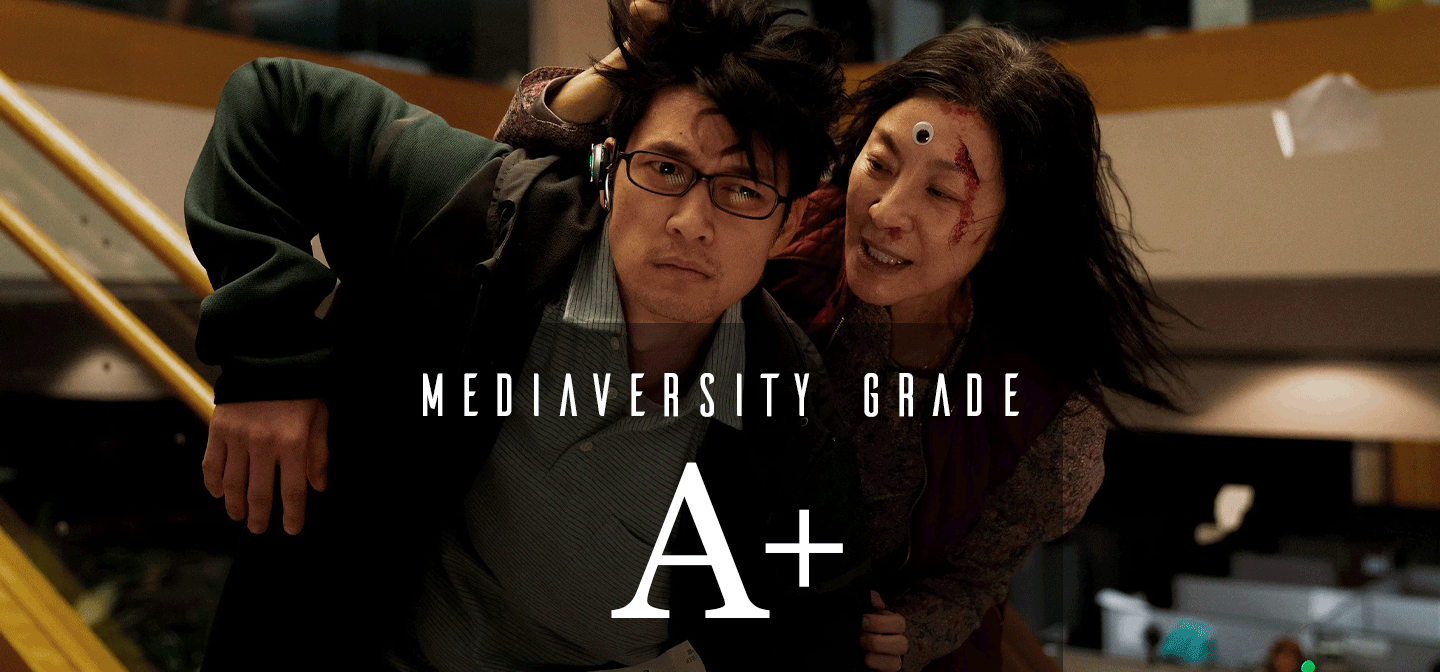Girl
“It’s wonderful to see such breadth of Black identities and skin colors in this Scottish, Glasgow-set story.”
Title: Girl (2023)
Director: Adura Onashile 👩🏾🇬🇧
Writer: Adura Onashile 👩🏾🇬🇧
Reviewed by Li 👩🏻🇺🇸
—SPOILERS AHEAD—
Technical: 3.5/5
Adura Onashile’s first feature film, Girl, glides through its 87-minute runtime in a dreamlike haze. Moody lighting, extreme close-ups, and blurred soft focus combine into a translucent looking glass of Onashile’s memories. Indeed, the film was inspired by a 6-month period of her childhood where she lived in a high-rise council estate in Bermondsey, London, surrounded by “National Front fascists.” There, as Onashile informs us in her director’s statement, she felt incongruously safe and happy thanks to the efforts of her mother, who shielded her from a harsher reality.
This surrealist cocoon translates well to the screen, as viewers spend the better part of the film sharing a tiny apartment with the co-dependent duo of 25-year-old Grace (Déborah Lukumuena) and her 11-year-old daughter Ama (Le'Shantey Bonsu). But where the film succeeds in constructing something tender and fragile, emotions brimming just under paper-thin facades, it just as easily feels small. Character development happens internally, which sometimes appears in abrupt changes in behavior that may take a viewer by surprise. Leading actors Lukumuena and Bonsu make terrific work of their roles, communicating plenty through subtle expressions, body language, and tones of voice. But it’s a tall order for anyone to create truly affecting characters when given such spartan scaffolding.
Gender: 5/5
Does it pass the Bechdel Test? YES
Girl honors women through every facet of its being. Behind the lens, women helm key roles like director and writer (Onashile), cinematographer (Tasha Back), editor (Stella Heath Keir), and producers (Ciara Barry and Rosie Crerar). On screen, we follow almost exclusively women: Main characters Grace and Ama find their relationship tested by Ama’s new friend, Fiona (Liana Turner). The school administrator Lisa (Ayesha Antoine) also poses an intimidating figure to Grace. In fact, the only male supporting character of any significance arrives through Grace’s empathetic landlord, Samuel (Danny Sapani). Men show up in other minor roles, but Girl prefers to home in on the bonds between girls and women.
Race: 5/5
Black actors make up the majority of the cast, from French talent Lukumuena, whose parents immigrated from the Democratic Republic of the Congo (then called Zaire), to Bonsu, who is British Ghanaian and plays Lukumuena’s onscreen daughter. London-born actor Sapani also has Ghanaian ancestry while Essex-born actor Ayesha is English, Dominican, and Welsh. It’s wonderful to see such breadth of Black identities and skin colors in this Scottish, Glasgow-set story.
Racial representation also arrives in depth. British Nigerian Onashile shares her intimate knowledge of growing up in the United Kingdom as a Black woman through her interview with The Stack World, saying, “I was bullied a lot because of my accent.” The article goes on to add that “Onashile would mimic the way that the popular white girls in her class spoke and dressed, in order to fit in.” We see echoes of that on screen, as Ama’s white classmates make fun of her for smelling bad, or when Grace and Ama don blankets and homemade “crowns” twisted from wire, speaking in the Queen’s English and play-acting royalty. The film also acknowledges the overt racism they face; in a heartbreaking incident, we see rotten bananas shoved through Grace’s mail slot. She angrily tapes it up, safeguarding Ama from seeing the hateful actions of their neighbors. These scenes feel bracingly intimate, perhaps because they were drawn from lived experience.
Bonus for Body Diversity: +0.50
Despite its folkloric voice, a sense of textural realness carries throughout Girl—and that extends to body diversity seen in main and supporting characters. While the film doesn’t pause to examine society’s toxic standards of beauty, it does quietly subvert them. In an empowering scene, Grace ditches the baggy sweatshirts and high-necked jumpers she’s hidden her body behind for the majority of the film, emerging in a flashy sequined dress. She looks in the full-length mirror, clearly feeling herself, hips and cleavage on full, gorgeous display.
Mediaversity Grade: A- 4.67/5
Onashile’s film hugs its cards close to the chest, relying on the viewer to make mental leaps for its characters. But the vision is there, cinematography deftly portraying the anxious yet beautiful fable of a mother and daughter trapped in a Glasgow council estate.




